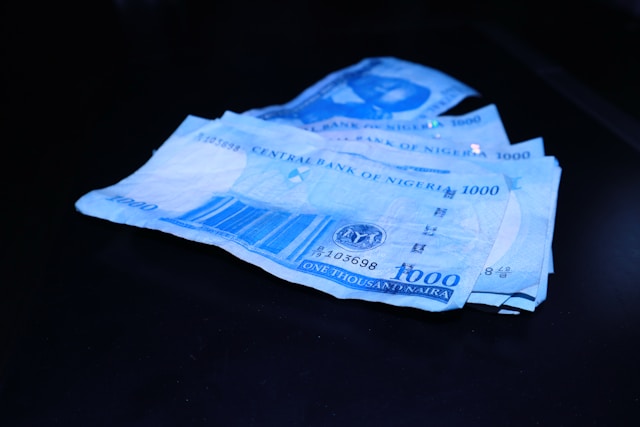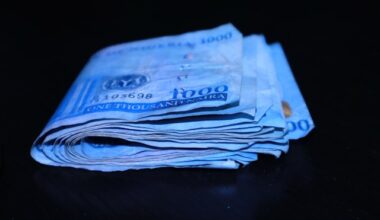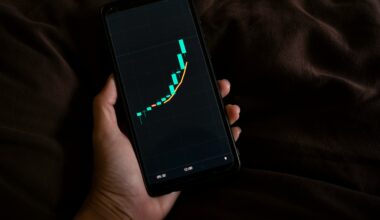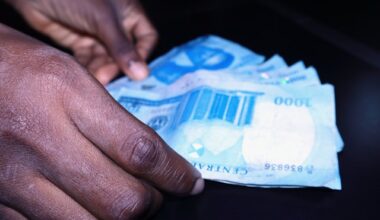If you’re one of many Nigerians carefully stashing money in your naira-bank account, believing you’re safely building up savings, here’s a hard truth: your money is likely losing value, even if you’re not spending it. I know that sounds counter-intuitive. But when inflation, currency devaluation and low interest rates combine, sitting on cash in naira becomes a stealth wealth-eroder. In this article, we’ll unpack exactly why your naira savings are losing value, step-by-step, and explore what you can do to protect and grow your funds.
What does “your naira savings losing value” really mean?
Before diving into causes, let’s clarify the phrase. When we say your savings are losing value, we mean purchasing power is falling — i.e., the same amount of naira buys fewer goods or services over time. It’s not just about “I spent it” — it’s about “it’s worth less now, even though I didn’t touch it.”
Key mechanisms at work:
- Inflation: general price-rise means your money can buy less.
- Currency devaluation: when the Nigerian Naira (₦) weakens against major currencies, your naira-denominated savings are worth less in real or foreign-currency terms.
- Low interest/returns: when your savings account’s interest rate is lower than inflation, you end up with a negative real return.
These combine to create the “secret leak” in value.
Key reasons your naira savings are losing value
Let’s break down the main drivers:
1. Inflation outpaces interest rates
Nigeria has been experiencing high inflation. According to one recent analysis, inflation soared from about 13 % in 2020 to nearly 35 % by the end of 2024. (Credit Direct) Meanwhile many banks pay single-digit interest rates on savings accounts — far below inflation. As one bank explained: with inflation at 24 % and a savings rate ~5.6 %, savers lose about 18.5 % per annum. (Keystone Bank) Put simply: you’re earning maybe 5%, but prices are rising 25%+ — the gap eats your money.
2. Naira devaluation and currency risk
When the naira depreciates against the dollar (and other major currencies), the value of your naira savings falls if you measure them in real international purchasing power. As one commentary notes, Nigeria’s currency adjustment has been “one of the largest anywhere for years”, with huge devaluation over recent period. (Chatham House) In other words, even if local prices didn’t rise, the currency itself is worth less abroad, making imports and foreign-cost items more expensive — which feeds domestic inflation too.
3. Low yield + poor returns on traditional savings
Many traditional savings products offer very low yields, sometimes barely 1-2% annual interest. An article puts it like this: “the average interest rate on a savings account is 2 % … while inflation remains high.” (Remitano) So your money sits still, but the value drifts down.
4. The compounding effect of doing nothing
It might feel safe to “just save and wait” in your naira account. But when the value declines year after year, the cumulative effect becomes significant — a savings pot that looked decent in year one might buy much less in year five or ten. As one blog said: “In an economy with significant inflation like Nigeria … traditional savings might not be sufficient to preserve the value of your hard-earned naira.” (Money Africa)
5. External shocks and structural economic risk
There are structural reasons the naira faces pressure: reliance on oil revenues, currency controls, import dependency, and global commodity cycles. One piece explains how oil price falls and weaker dollar inflows push the naira to devalue. (Discovery Alert) These macro factors make the naira more volatile and less reliable as a stable store of value.
A comparison table: “Saving in naira vs the real value over time”
Here’s a simplified table showing how a naira savings account might behave under typical Nigerian conditions:
| Component | Scenario A: Low inflation (~5 %) & moderate interest (~4 %) | Scenario B: High inflation (~25 %) & low interest (~5 %) |
|---|---|---|
| Real return on savings | ~ –1 % (roughly flat) | ~ –20 % (you lose value) |
| Value of ₦1,000,000 after 1 year | ~ ₦990,000 (at −1 %) | ~ ₦800,000 (at −20 %) |
| Purchasing power relative to imports | Small erosion | Major erosion |
| Risk of savings being “eaten” | Low | High |
As the table shows, under high inflation + low interest the “secret leak” is obvious — your savings may feel safe, but in reality you’re losing value.
Signs you’re actually losing value on your naira savings
Here are some red flags to watch out for:
- Your savings account interest rate is in the low single-digits (e.g., 1-5 %) while official inflation is 20 %+
- You notice every year your budget buys less: imported goods cost much more, food and utilities surge
- You find yourself still worried about how to pay for things you assumed savings would cover
- You check the exchange rate and find the naira weakens each year — making imported costs (or foreign tuition, travel, etc) significantly higher
What you can do: how to protect and grow your naira savings
Here are practical strategies to stop the leak and be proactive with your savings:
• Diversify your savings and assets
Consider holding some savings in foreign-currency instruments (or assets linked to foreign currency) if accessible. One article explains that because naira volatility is high, part of your savings should be in foreign currency or inflation-linked assets. (nairaCompare)
• Choose higher-return instruments
Rather than holding cash in a plain savings account, explore options that aim to outpace inflation: real estate, stocks, inflation-linked bonds, or fixed income that offers better returns.
• Adjust your expectations and plan for inflation
Recognise that nominal gains are different from real gains. When you plan your savings, model for inflation of 20-30% rather than assuming 5%.
• Use savings that lock funds but offer discipline
Some fintech platforms allow you to lock savings for a period (reducing the temptation to withdraw) and sometimes offer higher returns. This helps saving become more disciplined and the money less exposed to idle loss. One blog highlighted this approach of locking funds to protect value. (Medium)
• Monitor currency and macro-economic signals
Stay aware of the naira’s performance, inflation trajectory, central bank policies, and the foreign-exchange market. When the naira shows signs of weakness, that’s a warning sign for your savings.
• Use a mix of short-term and long-term savings
Keep a portion liquid for emergencies (in a reasonably safe instrument) and allocate the rest to assets or instruments designed for long-term preservation of value.
Why this isn’t just about “you”, it’s about Nigeria’s savings culture
When large numbers of Nigerians keep savings solely in naira and traditional bank accounts, the collective impact is substantial: weaker consumer spending power, lower investment capacity, and more vulnerability for retirees or future financial plans. As one report put it: “Rising inflation is shrinking the value of Nigerians’ savings, making traditional accounts a risky place to keep money.” (Punch)
Furthermore, since the naira’s competitiveness and depreciation are tied to structural challenges (oil dependency, currency policy, imports) the risk isn’t transient — it’s embedded. Thus, saving in naira without adequate strategy can mean you’re fighting the current without realising it.
Conclusion: don’t just save — protect and grow
If you’re saving naira today hoping to secure your future, that’s commendable. But if you’re not asking how much value will this have tomorrow, you’re missing the key. Your savings aren’t just stagnant — they may be quietly shrinking in value.
Here’s the takeaway: evaluate your savings using real returns, not nominal. Understand inflation, currency risk, and interest rates. Be proactive: diversify, aim for higher returns, and treat part of your savings as an investment in preserving purchasing power.
Because the secret isn’t that your savings are idle — it’s that they’re losing value without you spending a kobo. Recognising that is your first step to beating the leak, and keeping your hard-earned naira working for you.
Why Are Thousands of Nigerians Googling “naira to dollar” at Midnight?
What Nigerian Banks Don’t Want You to Know About Taking a ₦100,000 Loan






1 comment